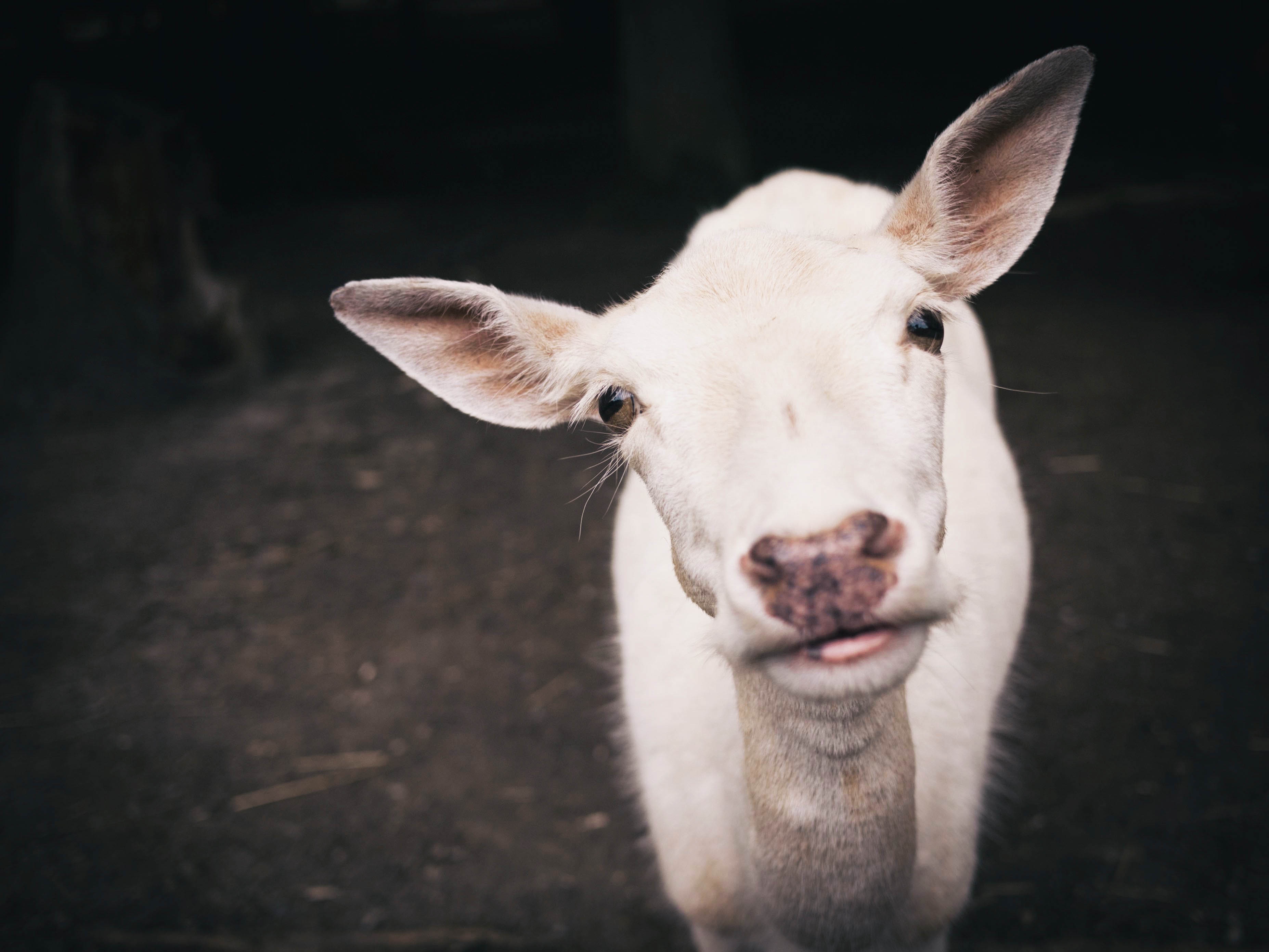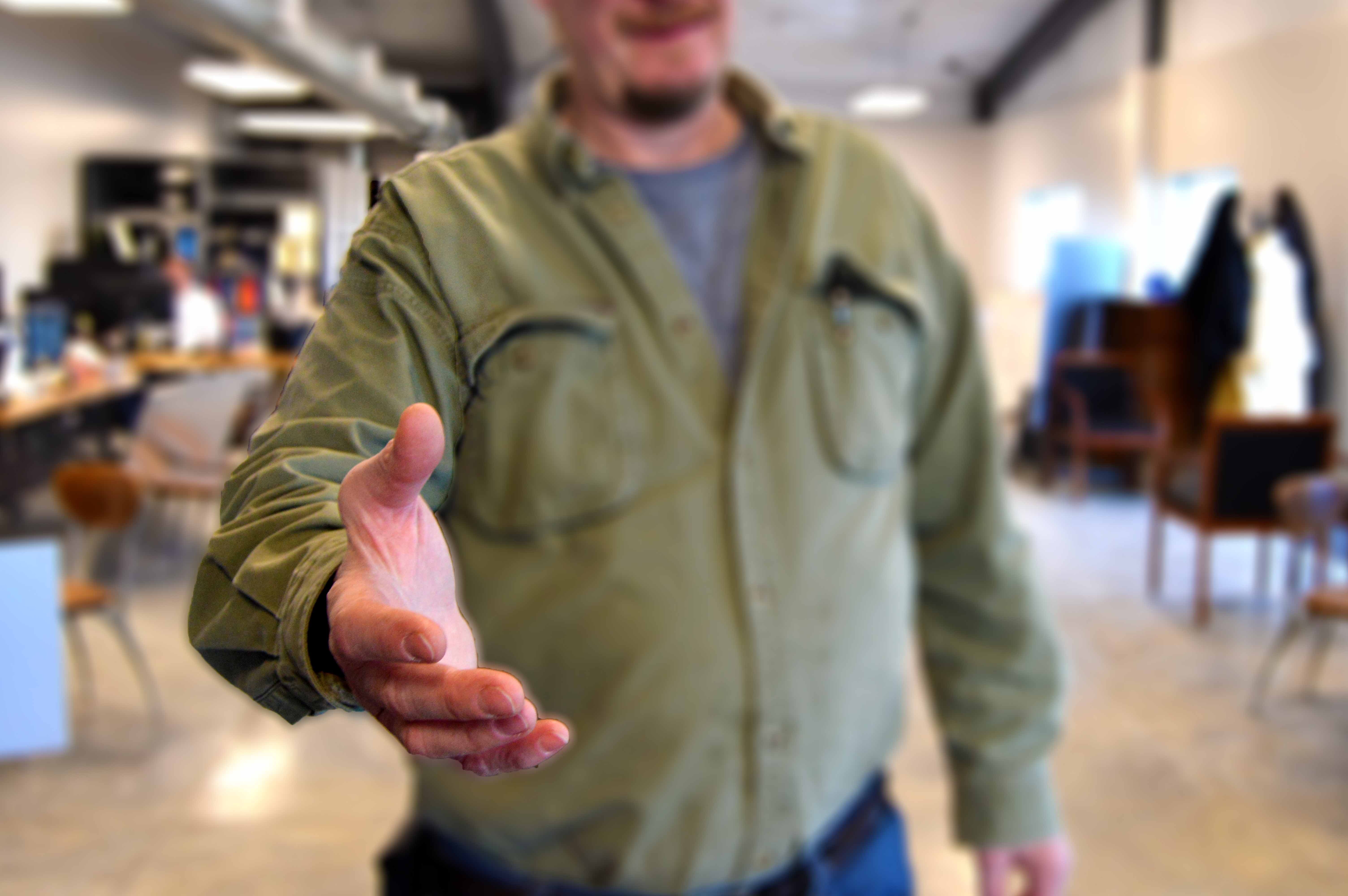It Is Ethical To Eat Meat
(This is a response to the post by trafalgar ( ), “Is It Ethical To Eat Meat?” found here: https://steemit.com/life/@trafalgar/is-it-ethical-to-eat-meat )
Sentience and suffering.
These are usually the two main reasons for being against the consumption of non-human animals (we mean the larger more complex animals, of course - no one usually cares about the lowly rotifer, for instance). One, they are sentient, they are conscious, aware, and thus, they share something fundamental with us, they have a self, and furthermore, they also share with us the ability to experience pain and suffering, which is necessarily inflicted upon them to at least some extent if they are to be used as food by human beings. But, while these reasons trigger our empathy, they do not make a logical case against the ethical consumption of meat as I will argue here.
 (Photo by Michael Kahl from Unsplash.com)
(Photo by Michael Kahl from Unsplash.com)
The idea does initially seem to bode well with our intuition though. There is certainly a sort of intuitive obviousness to the goodness of reducing pain and suffering in the world. But if one desires more than mere intuition as defense - as people devoted to sound argument and followings facts over feelings must – such an intuition at the very least requires a grounding in evidence and reason, if not total rejection in favor of solid first principles as an alternative starting point altogether. But the problem is that there is no obvious method (at least not to this author) by which to logically travel from the specific idea that eating animals will inflict upon them pain and suffering to the idea that this necessarily makes it wrong to do so. It just feels right at first. This point however is often made not as a point about eating animals specifically, but as a special application of a broader point – something like that it is always wrong to inflict pain and suffering, or more often and more conservatively, that it is always wrong to inflict more pain and suffering than is absolutely necessary, that one must do one’s best to alleviate it as much as possible. Those arguing this almost always also argue that this is the basis of morality as such, and thus it is the only argument we have for not killing and/or eating our fellow human beings as well as the animals. The logic goes like this, if pain and suffering are the only possible reasons that killing and eating other human beings is wrong, then it also must be wrong to eat non-human animals, as they also experience pain and suffering. But if we assume it is definitely not wrong to eat non-human animals, then logically it cannot also be wrong to eat human beings, otherwise we arrive at a contradiction. Therefore, it must be wrong to eat animals just as it would be to eat human beings.
My response:
First, it is not clear that animals are currently suffering more, with some being eaten by humans. The alternative, being wild and not domesticated, is no walk in the park either. Non-domesticated animals suffer in many ways and often in far worse ways than domesticated ones. Not only will they still obviously die eventually just like their domesticated counterparts, but likely in a more gruesome and painful way. Instead of a quick shot to the head they could get, for instance, they often get sick and suffer from illness sometimes for a long time before dying, or they suffer a terrible accident, or even worse, get eaten alive. And it is also questionable if their lives prior to that are really any less suffering filled anyway, and in fact, it seems more likely that they would be filled with more. Wild animals must perpetually deal with the stress of being constantly vigilant of predators, regularly needing to find food or die, and they have no modern amenities available. Domesticated animals on the other hand frequently have free and easy and access to clean and healthy food, water, shelter, and even medical care. While they may not have the “wild” lifestyle, it is not obvious they would want it or that it’s preferable, and in some cases, their nature has been so radically altered by thousands of years of domestication, it is certain they would not want it and would even be incapable of surviving any other way. Simply letting at least some domesticated animals into the wild and not at the very least continuing to take care of them through animal husbandry would be a death sentence and lead to far more suffering.
 (Photo by Louis Blythe from Unsplash.com)
(Photo by Louis Blythe from Unsplash.com)
Second, the alleviation of suffering is not the proper basis of morality anyway. The arguments for this position almost always come from a consequentialist point of view. The idea is that one can take it as a given, as a fundamental starting point, as axiomatic in ethics, that that what is good in life is pleasure and those acts which lead to it (or at the very least the reduction of pain which some philosophers define pleasure as anyway). Many philosophers have argued this. Most popularly in recent history is perhaps that of Sam Harris who says that if we are not talking about the alleviation of suffering when we speak of ethics, that he doesn’t know what we are talking about. This is essentially his entire argument for why it is axiomatic. But this is not a logical argument. There were ancient sophists who found it just as intuitively obvious that ethics was fundamentally about the domination of the weak by the strong (and they would find Harris’ position equally absurd), and while I can personally call upon my feelings (as I hope my readers can) to provide me with the powerful sense that this is not as good a starting point as that of Sam Harris, I cannot call upon my reason and find a good argument for the one over the other, and this completely undercuts the notion that either starting point is necessary, logical, or reasonable at all. Further, necessary starting points are so because they are logically so. For instance, the law of identity is axiomatic because if one asked another to prove or validate the law of identity, what standard if not the law of identity could they use to verify the validity of the proof? By asking for any proof or validation at all, they have already implicitly accepted the validity of the law of identity, so it is illogical to even ask for proof of it in the first place, hence why it is axiomatic. No such analysis however can be made of an “axiom” of the alleviation of suffering.
So...?
The question then remains, why then is it wrong to kill and eat our fellow human beings? The reason is ultimately that humans have the capacity to reason; as Aristotle put it, we are the rational animal. It is because humans have the power of reason that we can, upon disagreement with each other, have recourse outside the realm of the use of force. For the animals, or any creature without reason, fundamental disagreements cannot be resolved by argumentation, it is either kill or be killed. But human beings have the unique ability to debate and come to an agreement due to our unique capacity to reason, and along with this comes the ability to preemptively and collectively decide that if we disagree with each other, to simply go our separate ways, instead of coercing each other. In other words, human beings by virtue of the power of reason, are able to arrive at the concept of rights which necessarily involves an element of reciprocity; we respect each other’s freedom of action because we can expect in return that our fellow man will respond in kind because he is capable of understanding the value in doing so to his own life as we also do for our own.
 (Photo by Russ Ward from Unsplash.com)
(Photo by Russ Ward from Unsplash.com)
Upon this line of thinking, it then becomes clear why animals cannot have rights protection in the same way humans do; they cannot mutually respect our rights as we would be compelled to respect theirs. Trying to get us to do so would necessarily create an unbalance and ultimately mean the sacrificing of the rights of human beings for those of the animals, not equality anyway. It would mean the forced labor of some men to maintain separation between certain wild animal populations and man, instead of letting local individuals decide how to interact with them. It would mean that people who need lifesaving medical treatment that could only be created with the use of animal testing (which is actually quite a significant amount) are killed for the sake of the animals. Worse, it may mean an unhealthy even miserable human population, or at least an unhealthy and miserable subset of the human population. I can only speak anecdotally here, but it seems to me that there are a number of individuals who cannot live healthy lives without eating meat. I have personally known a few people and read about many more online who claim to have tried numerous variations of vegan and vegetarian diets, some trying as many as a dozen over the course of a few years, and yet never functioning nearly as optimally as they can and do on diets including meat and animal products. It is also worth considering that anthropologists and biologists have shown that eating meat was essential to making our species what we are today and that many of our features are specifically designed to that end. All of the evidence seems to suggest it is in our nature to do so. Just as it isn't wrong for the lion to eat the gazelle, it isn't wrong for us to either. I would almost go so far as saying that asking us not to eat meat is like asking a bird not to fly. So I definitely think it is ethical to do so.
-------------------------------------------------------------------------------------------------------------------------------
Thanks for reading! If you find value in this post, please upvote, and follow me, @aology.
You could say the same thing about humans, as you can about animals.
If you're locked up in a cage, you're less likely to suffer and get infected with diseases, breaking bones, getting killed by others etc.
But is that a better life than being free and taking risks? I know what I would pick.
I wouldn't say that less discomfort is an argument for breeding animals, for the sole purpose of keeping them locked up, in order to eventually kill and eat them.
I haven't reached a conclusion, however, and I'm neither a vegan or vegetarian. I just thought I'd bring my input to the specific argument.
The point you dispute did not alone make up my whole argument. I gave other reasons for respecting the rights of people that do not apply to animals.
I know, that's why I specified that this one argument is sort of irrelevant. I don't want to dispute your other arguments, as I can see the logic in most of them.
I don't see how it is irrelevant. People argue that causing animals pain and suffering is wrong therefore that eating animals is wrong as it causes that pain and suffering. The point I made in response is that it may very well be the case that animals would endure more pain and suffering if we do not eat them, so the pain and suffering argument is questionable. Regardless of what this means regarding how we treat people, that holds.
Well, animals wouldn't endure any pain if we didn't breed them at all. Wouldn't that be even better?
I don't think you're carefully reading what I'm saying. I can't imagine responding as you have if you did. Because I argued specifically that if we did not continue breeding most domesticated animals through husbandry, I thought they were likely to suffer even more. And yet that is what you ask for without any argument to the contrary?
Your reply also doesn't take into account my point about the nature of domesticated animals being such that, they have been, through thousands of years of selection, designed for such a lifestyle, quite unlike human beings.
Congratulations @aology! You have completed some achievement on Steemit and have been rewarded with new badge(s) :
Click on any badge to view your own Board of Honnor on SteemitBoard.
For more information about SteemitBoard, click here
If you no longer want to receive notifications, reply to this comment with the word
STOPBy upvoting this notification, you can help all Steemit users. Learn how here!